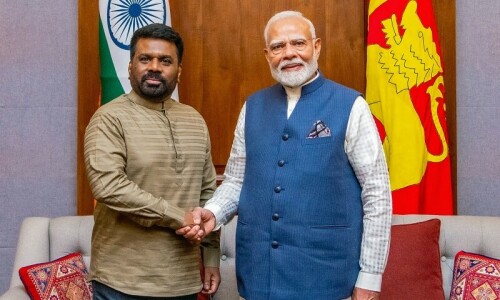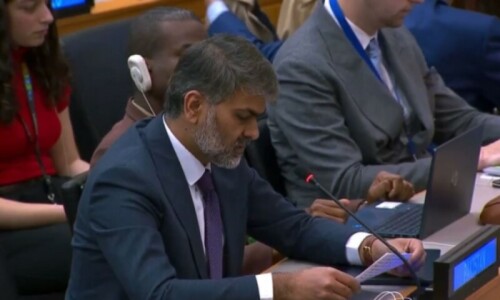LAHORE: Minority rights organisation Center for Social Justice (CSJ) held a consultation where they denounced the rise in the incidents of forced conversion of women, and specifically of underage girls from the religious minority communities.
The discussion titled ‘Forced Conversion Complaints and Religious Freedom’ was held online on Saturday.
CSJ stressed that around 162 questionable conversions had been reported in the media between 2013 and 2020 and abuses which had occurred in violation of religious freedom enshrined in Pakistan’s constitution of 1973.
According to CSJ data, around 52 per cent of the incidents of alleged forced conversions had occurred in Punjab, 44pc in Sindh, while 1.23pc each were reported in the federal and Khyber Pakhtunkhwa areas, while one case (0.62pc) was reported from Balochistan.
The highest number of such cases — 21 — was reported in Bahawalpur during the past seven years roughly. Similarly 14 cases were reported in Lahore, 12 in Karachi, 10 in Faisalabad, 8 in Hyderabad, 6 each in Tharparkar, Ghotki and Kasu, 5 in Badin, 4 each in Umarkot and Sialkot.
The figures show that 54.3pc of the victims (girls and women) belonged to the Hindu community, 44.44pc Christian while 0.62 pc belonged tothe Sikh and Kalash communities.
Over 46.3pc of the victims of forced conversion were minors clearly (some 32.7 pc of them aged between 11-15 years), while only 16.67pc of the victims were above 18 years, though the claim was not always verified by the lower courts through record of the National Database and Registration Authority (Nadra), school etc.
Speakers at the event agreed that the actual ratio of the underage victims could be higher because the exact age of over 37pc of the victims was not mentioned in the reportage.
A steady increase in conversions from three cases in 2013, to 13 in 2014, 20 in 2015, to 31 in 2016 was reflected in the data. Dropping slightly to 23 in 2017, then further to 11 in 2018. However, the highest number of 49 cases was reported in 2019, while 13 cases have been reported till November 2020.
Peter Jacob, Executive Director of CSJ and Chairperson of the People’s Commission for Minorities’ Rights stated that due to the absence of adequate response from the state, involuntary, unethical and manipulated conversions and marriages pose a serious threat to the social cohesion, religious freedom and the respect for human rights.
They said an administrative and policy intervention on an urgent basis was necessary to protect the rights of religious minorities, especially of minority women and children.
“The government should strengthen institutional protection of minority rights by undertaking legal, policy and administrative measures to cater to the challenges of forced conversions in Pakistan,” he said.
The participants initiated a signature campaign addressed to the prime minster, urging the government to consider recommendations presented by the People’s Commissions for Minorities Rights and CSJ.
The recommendations urged the federal human rights ministry to carry out a comprehensive study and analysis of the issue, including the under-trial cases; the parliamentary committee established in November 2019 should only make statements based on factual inquiries and comprehensive data analysis.
It was demanded that police must investigate all such cases under Section 498-B of the Pakistan Penal Code, as this enactment was particularly relevant to forced conversion and marriages involving minority women. The law has not been applied since its enactment in 2017.
They also said that the majority Act be amended to bring it in conformity with the NADRA Act and other laws.
Published in Dawn, November 29th, 2020















































